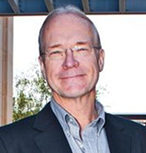Posted on June 12, 2015 by KC Gonzalez

Robert Cardy
Robert Cardy, chair of the Department of Management at the UTSA College of Business, is looking into the increasing instances of lying in job applications. And that’s not all—Cardy wants to know why people do it, and how they get away with it.
“It just seems there’s more falsification going on, more applicants that misrepresent themselves,” he said.
Cardy wanted to know how employers dealt with applicants lying about small things, like strengths and weaknesses, and how they faced bigger lies such as degrees and experience.
“How do you respond to someone misrepresenting information?” he said. “You could dismiss it, say it’s embellishment, which employers expect to some extent. On a job application, there’s this unstated expectation that information should be counted on as being accurate.”
What Cardy has found is that potential employers are much more likely to dismiss lies if the candidate is likable. It’s similar, he said, to when a liked employee is given a pass for a mistake, whereas a disliked employee is more likely to face blame and repercussions. The same goes for praise—a liked employee will receive accolades for their hard work, while a disliked employee will not, as others assume that person isn’t really responsible for their own hard work.
“If you’re liked, you’re more likely to be given the benefit of the doubt,” Cardy said.
But likability won’t save anyone from lying about their degree.
“So you’re dealing with this misrepresentation, a lie, how do you deal with that?” he said.
Cardy, who’s written several studies on likability, turned to students in his human resources class to evaluate fictitious candidates for a job opening based on experience, education and likability. The phantom charisma was established through trait terms to manipulate the students’ perception of the candidate.
“Basically, if no one likes you, watch out,” he said.
The research is ongoing, and Cardy now hopes to gather a group of real managers to acquire more data on their hiring processes, especially when it comes to falsification.

